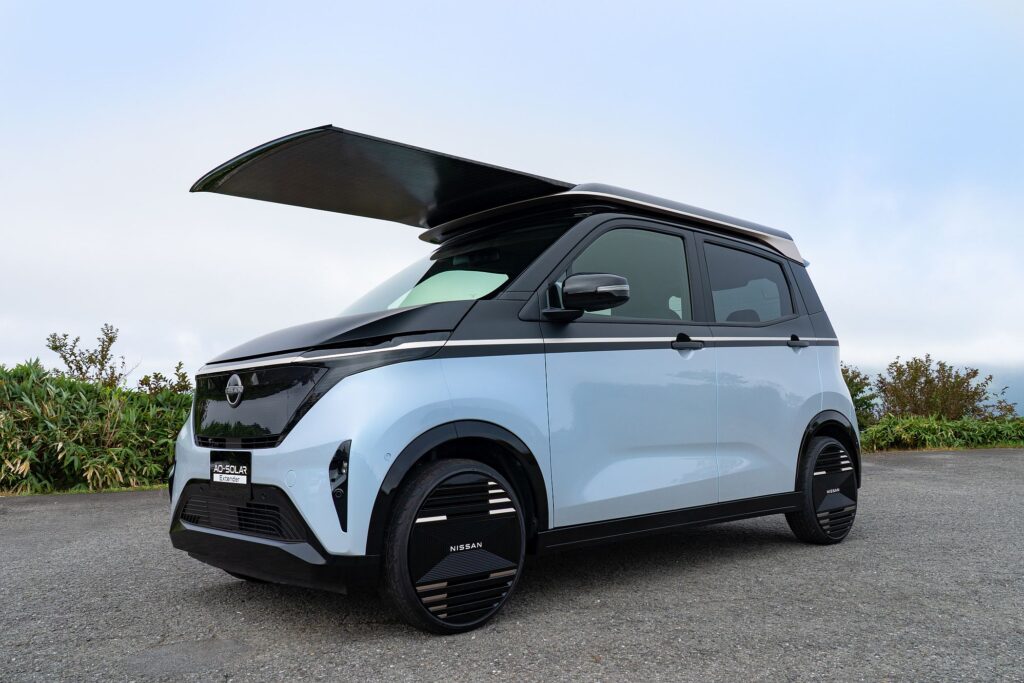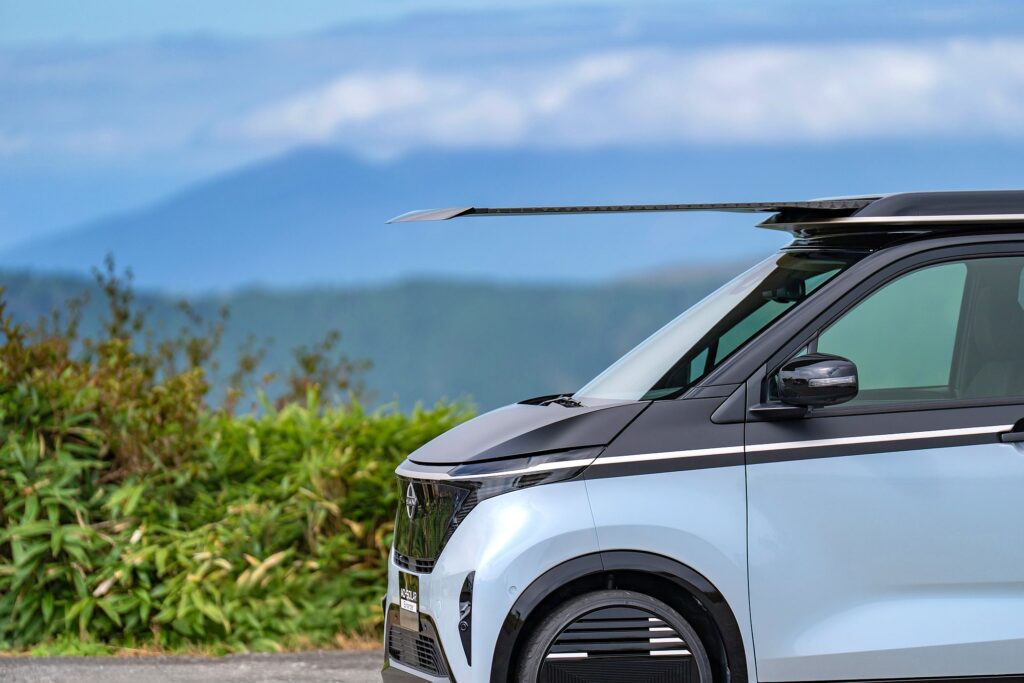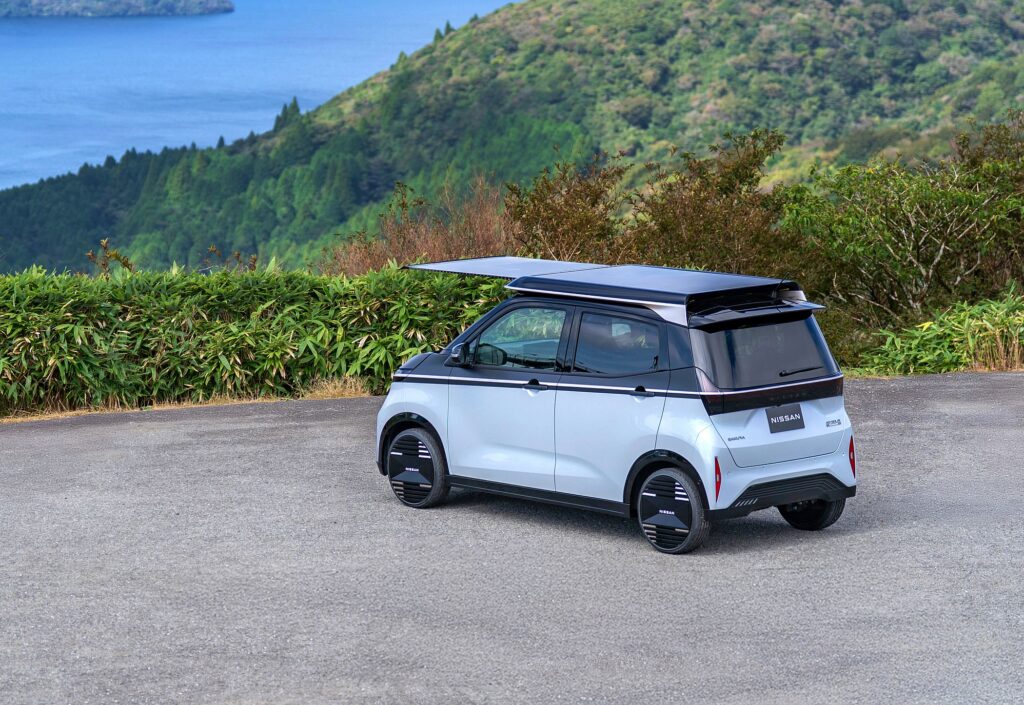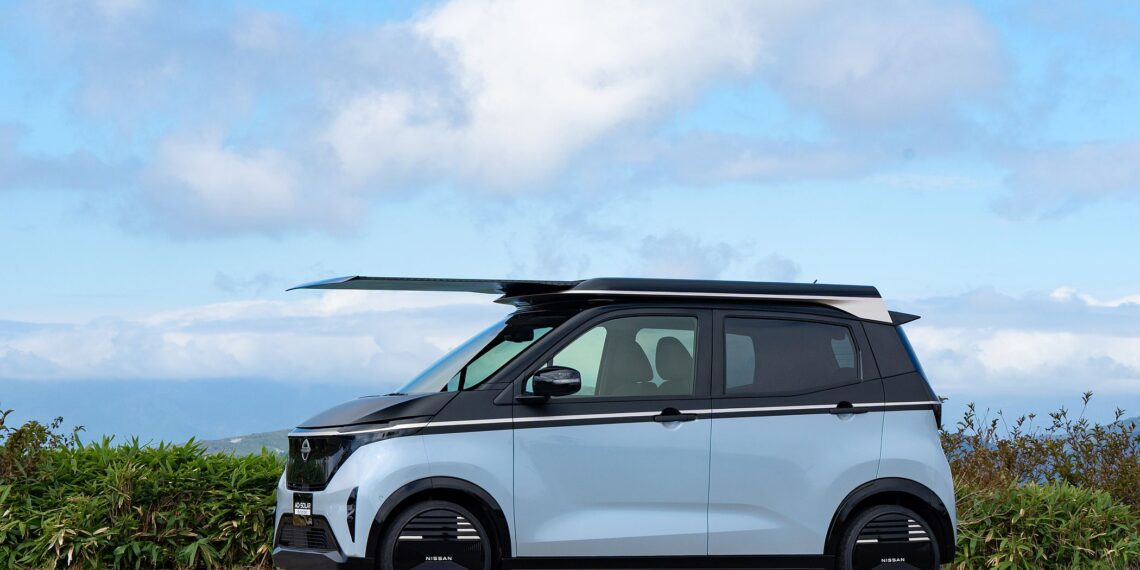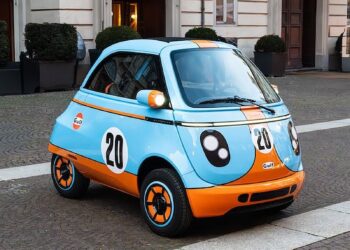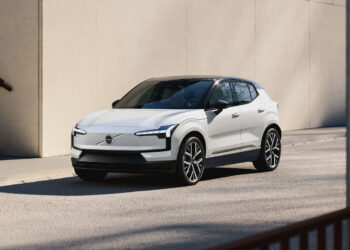Nissan unveiled a model of the electric kei-car Sakura with integrated extendable solar panel technology, which can increase the range while the vehicle is being driven. This system, dubbed Ao-Solar Extender, was presented at the Tokyo Mobility Show, with the brand indicating that the system could generate up to 3000 km of additional range per year.
Developed in-house by Nissan engineers, the solar panel system, presented on the best-selling electric vehicle in Japan over the past three years, aims to reduce dependence on the electrical grid and increase the convenience of using electric vehicles by simplifying the daily charging process. The Ao-Solar Extender, mounted on the roof, allows the battery to be charged both while in motion and when the car is parked, thanks to the fixed extendable panel that captures solar energy during driving, increasing the capture surface and energy production to approximately 500 Watts.
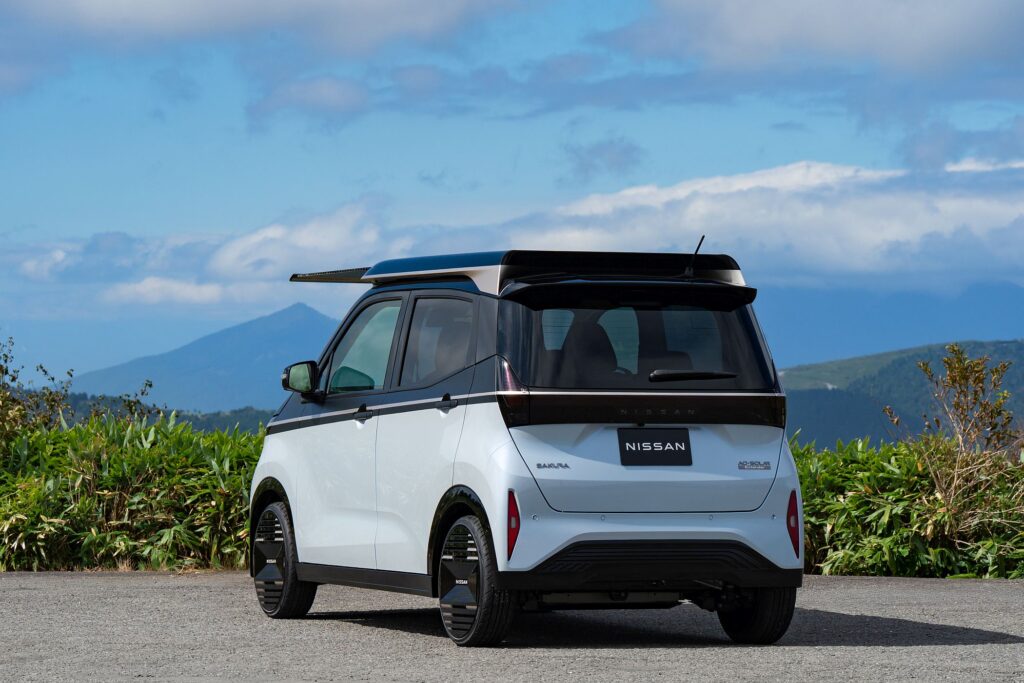
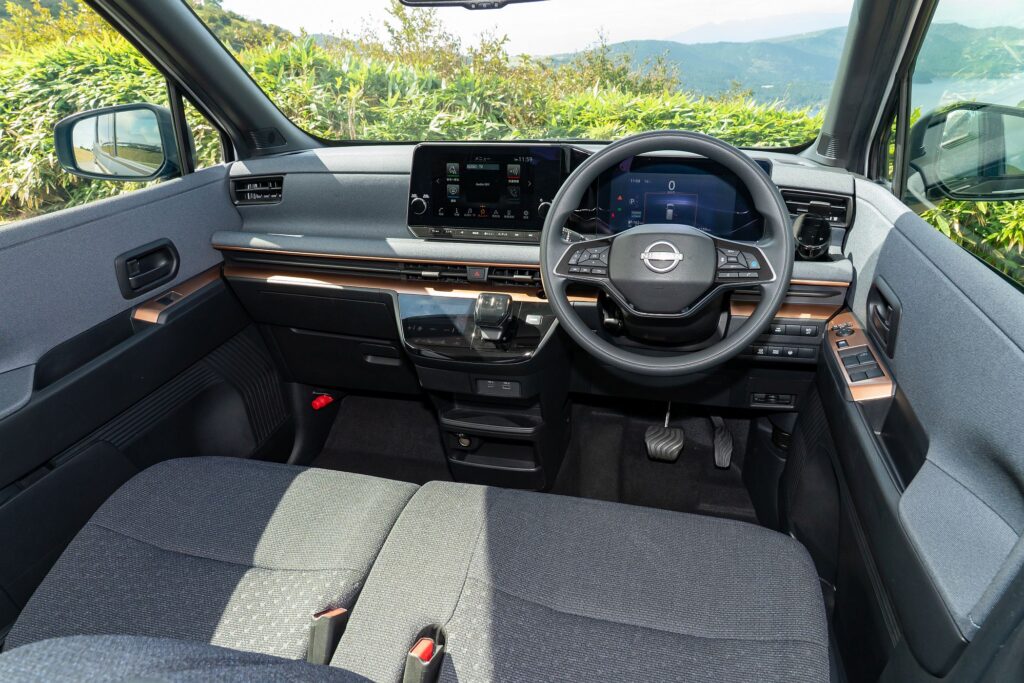
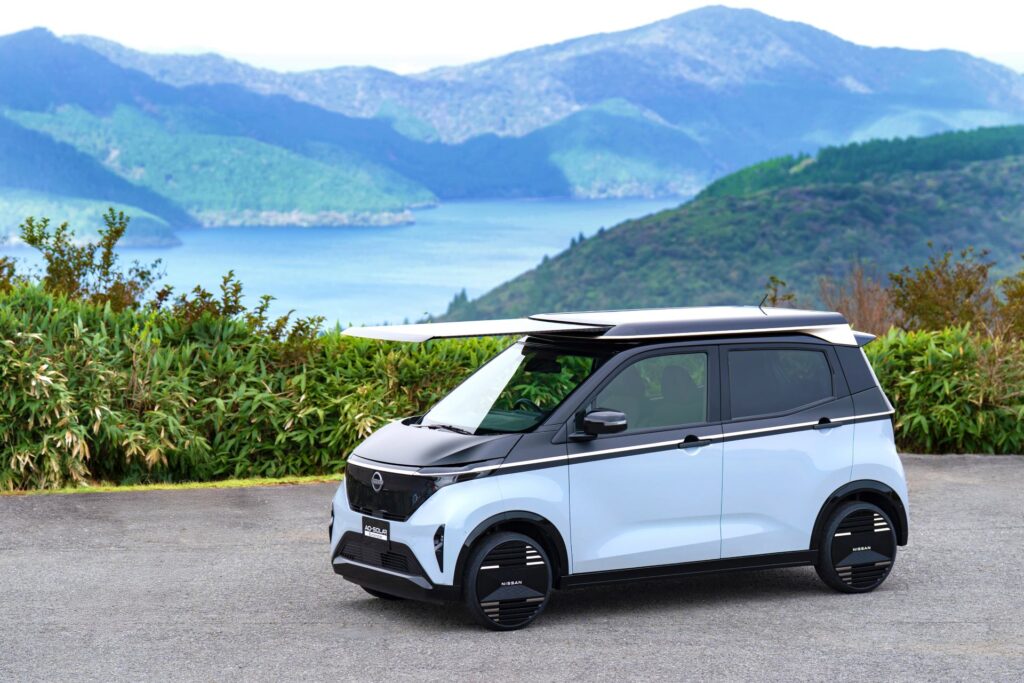
In addition to optimizing the range of the Sakura, this concept has another benefit derived from the extendable panel, as it provides shade for the cabin, reducing the amount of light entering through the windshield and, consequently, the temperature in the cabin, which decreases the need to use the air conditioning. The entire system has been designed to minimize wind resistance and to integrate into the model’s design, without compromising aerodynamics and aesthetics.
Driving data obtained from Nissan Sakura owners indicate that many primarily make short trips, such as school runs or shopping, suggesting that solar energy can practically eliminate the need for charging from the grid for a significant portion of users. Furthermore, the solar system can serve as an emergency power source in disaster situations.
The concept exemplifies the second pillar of the Re:Nissan strategy, seeking innovative mobility solutions that enhance the customer experience while improving the acceptance of electric vehicles. The brand anticipates that the Ao-Solar Extender system will be commercially launched in the future, although without a specific date.
